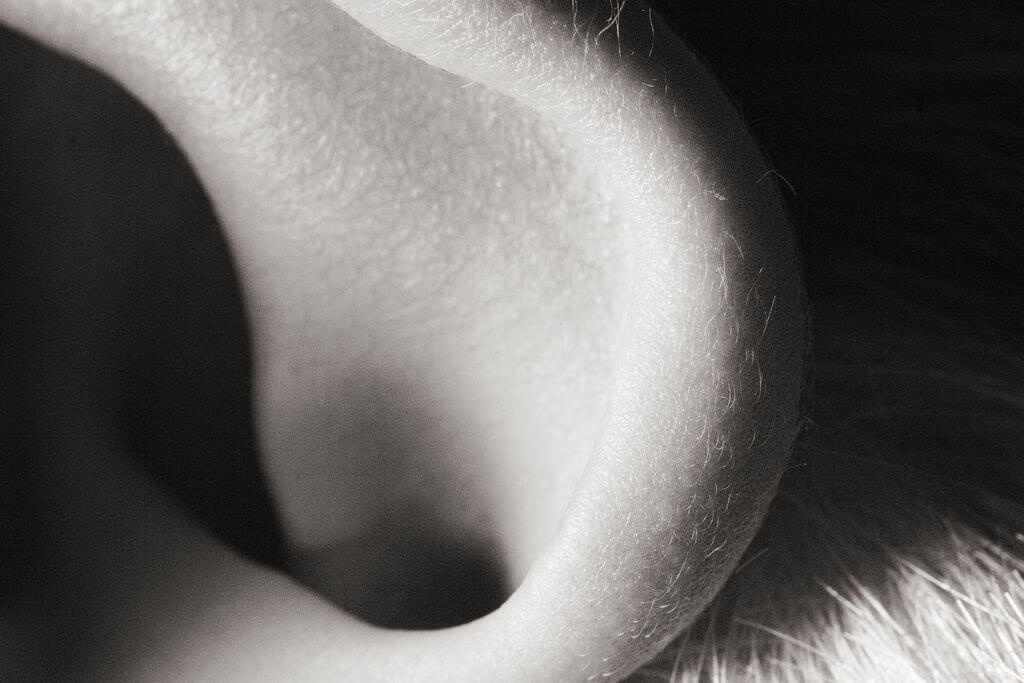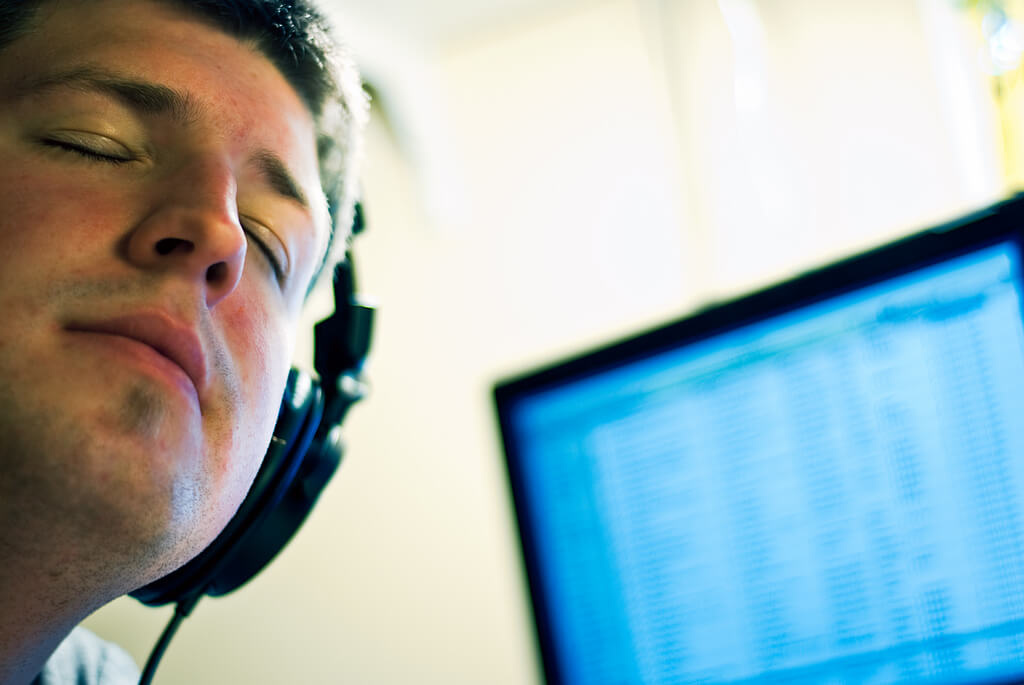With age, we lose our hearing. This is a sad but inevitable fact.
This is due to the physiological features of our hearing aids [
test yourself : best of all - with headphones]. The inner ear of a person is not restored. Therefore, over the years, a person loses the ability to hear sounds at a certain height.
The so-called
hair cells in our ear are damaged due to constant noise exposure from the outside - loud sounds destroy them, and they do not have the ability to regenerate (like many other systems and organs in the human body).
What is the reason for this process? Can I stop him? We understand.
 Photo of Mark Probst / CC BY-SA 2.0
Photo of Mark Probst / CC BY-SA 2.0How our capabilities change with age
The brain perceives sound due to the
organ of Corti , which is located in a spiral curled bone channel of the
inner ear . It consists of hair cells that perceive sound vibrations and turn them into nerve impulses - the brain deals with their processing.
The outer hair cells, which perceive and “transmit” sounds at higher frequencies to the brain, are the first to encounter the effects of sound waves, and therefore are destroyed faster.
In addition to age (the natural process of degradation), infections, autoimmune diseases and reactions to certain medications can affect hearing. Such a disorder (regardless of whether it is acquired naturally or not) is called
sensorineural hearing loss .
A simple
experiment allows you to calculate the "age of hearing." He demonstrates merciless math. The sound at a height of 8000 Hz can be heard by all living people without hearing problems. The level of 12000 Hz - cuts people over 50. Even higher - 15000 Hz may not be heard by people over 40. Next - more severe.
In fact, to call this hearing loss age degradation is also not entirely true. This process is more natural wear caused by environmental conditions. This is confirmed by scientific research - for example, members of the African tribe Maaban, who live far from civilization (and, as a result, noise pollution produced by it), can even hear old whispers at a distance of several hundred meters.
In other words, we lose our hearing, not only because we are aging, but because we live in a very noisy world. Any (even
very familiar to us ) loud sounds, be it a washing machine, a blender, a bulldozer on the street or speakers in a bar, cause irreparable damage to our hearing. This is a lengthy and irreversible process.
How to care for hearing
Hearing wear can be fought, as with the wear of any mechanism. You need to use it more carefully, observe safety rules and periodically engage in prevention.
Long-lasting sound effects louder than 85 dB are considered dangerous. For comparison:
- 60 dB - the volume of the usual conversation
- 90 dB - the sound of the movement of the motorcycle
- 100 dB - music in a nightclub
- 112 db - player at maximum
- 120 dB - siren
Three main introductory:1. Too long and too loud . The main problem is the duration of exposure. Loud music for 1-3 hours is the main reason for the rapid degradation of hearing.
2. Frequency . We are most sensitive to midrange sounds - 3-4 kilohertz.
3. Perception . If we listen to loud music for too long, our perception changes - it seems to us that it has become quieter, and we can still raise the volume.
In other words, we are constantly subject to noises that destroy our hearing. What to do? There are a number of simple and versatile ways to help preserve hearing:
Avoid excessively loud sounds . This is a banal advice, but the easiest. Even if the sound does not irritate you, if it is pleasant or melodious - its volume destroys the hair cells of the inner ear.
Ear plugs If you know that in the near future you will spend several hours in a noisy place, use earplugs.
Take breaks . Ears should "rest." If you find yourself in a noisy club or a buzzing openspace, periodically go out into the street or into a quiet corridor. In 5-10 minutes of silence, your hearing will recover a little and “rest.” If you spent two hours in space with a background noise of about 100 dB (for example, a music club), your hearing takes 16 hours to recover.
Rule 60:60 . Listen to music in headphones at 60% volume for no more than 60 minutes in a row.
 Photo by William Brawley / CC BY-SA 2.0Health
Photo by William Brawley / CC BY-SA 2.0Health . Another universal advice is to exercise, avoid stress, do not use ear sticks (consider alternatives), watch your blood pressure and take medicines only on the recommendation of a doctor, stop smoking. All this may affect hearing.
Noise reduction against gags . Another well-known fact is that the earplugs are very comfortable, but they are also more harmful to our ears than, for example, overhead headphones. If you need to "interrupt" the surrounding sounds, try the headphones with noise cancellation.
Those who by profession must have a delicate ear
There are
many professions related to working with sound. This field of activity is one of those where the necessary and only working tool, unfortunately, wears out the most during work. For example, DJs and musicians spend most of their careers under the influence of very loud sounds. 60% of musicians elected to the Rock and Roll Hall of Fame
suffer from some form of hearing loss.
British rapper Ben Drew (better known as Plan B) at the age of 30 began to suffer from tinnitus, which he first confused with the crash of trains. Now he wears special ear plugs, but his condition will deteriorate with age. “I have no doubt that the disease is caused by years spent on stage under loud decibels. If you're doing music or performing, don't forget about earplugs, ”Drew explained.
This is a common symptom among musicians - for example, Chris Martin, Eric Clapton and many other stars suffer from it. Sting also suffers from hearing problems and
supports initiatives that remind that it is important to take care of hearing, and not only for musicians.
But Paul Stanley, the frontman of the KISS group, has been deaf to one ear since childhood and suffers from
microtia . This, however, did not prevent him from becoming a musician, who is very sensitive to preserving the hearing he has. The danger, according to Stanley, is that people do not notice the loss of hearing acuity and come to their senses when the deterioration process can no longer be stopped.
Our hearing is aging - this is inevitable and caused by the conditions in which we live. We can take care of our ears and avoid unnecessary sound (and any other) stress. And earplugs. They are worth remembering and using.